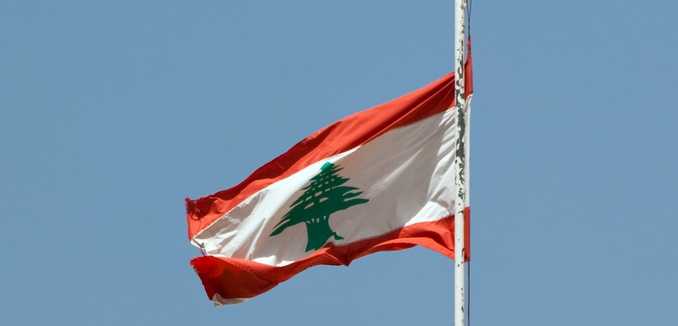Iran is working to obstruct the election of a new Lebanese president, a Lebanese member of parliament said on Sunday, highlighting continued attempts by the Islamic Republic and its terrorist proxy Hezbollah to maintain the political gridlock in Beirut.
Jamal al-Jarrah, who belongs to the Sunni-majority Future Movement party, explained that “[former Lebanese Prime Minister Saad] Hariri made several initiatives to end the presidential void, including nominating [Suleiman] Franjieh, but there’s a clear Iranian decision to block the election of a president.”
Franjieh is one of the top two contenders for the position of president of Lebanon – the other is Michel Aoun, the favorite of Iran and Hezbollah, which have together been able to paralyze the Lebanese political system. Franjieh also enjoys support from Iran and the Bashar al-Assad regime in Syria.
Lebanon has not had a president since May 2014 and its parliament has failed 44 times to elect one, most recently on September 8. Resigned Justice Minister Ashraf Rifi vowed on Sunday, “We will not allow what’s happening in Baghdad, Damascus and Sanaa to happen in Beirut and we will be fierce fighters in defending our Arab and Lebanese identity and in preventing the Iranian axis from changing it.”
Ya Libnan reported last week that Naim Qassem, the second-in-command of Hezbollah, acknowledged that his organization had blocked the appointment of a new Lebanese president. “The days have proved that there is a specific path for the presidency. Those who want to elect a president have only one route to take and it leads to General Michel Aoun,” Qassem said. “The global and regional powers, the Security Council and the Arab League will not be able to alter this course. They have been trying for two years to no avail.”
Hezbollah’s obstruction of the domestic Lebanese political process comes as the Iranian proxy is preparing for another war with Israel. An Israeli defense official told The New York Times in May 2015 that the buildup of Hezbollah’s terror infrastructure in southern Lebanese villages meant that “civilians are living in a military compound” and that their lives were at risk. A few days later, a newspaper linked to Hezbollah bolstered the Israeli assessment.
Geoff Corn, an international military law expert, explained to The Weekly Standard in July that if Israel were to strike in this instance, “both legally and morally, the cause of these tragic consequences will lie solely at the feet of Hezbollah.” Because of this, Corn said, “Hezbollah should be pressured starting today to avoid locating such vital military assets among civilians.”
Hezbollah has gained significant combat experience in Syria while supporting the murderous regime of Bashar al-Assad, which the terror group will be able to deploy against Israel. Its arsenal of rockets has increased tenfold since 2006 to more than 130,000, more than all non-U.S. NATO countries combined. The group also has hundreds of drones, Yakhont surface-to-sea missiles, anti-tank missiles (including the Russian Kornet), advanced anti-aircraft weaponry, long-range rockets, and M-600 ballistic missiles.
[Photo: Eusebius@Commons / Flickr ]




